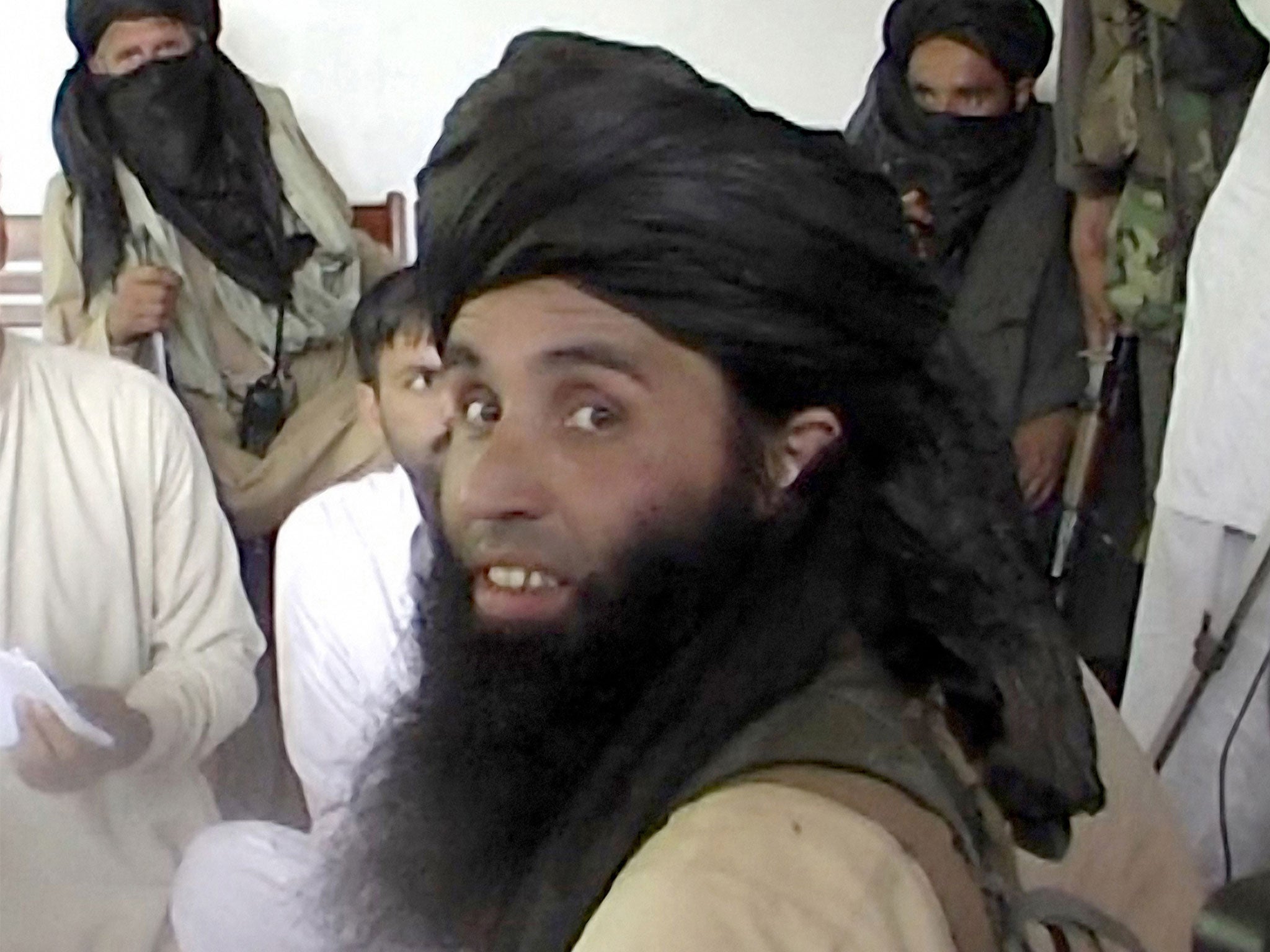Taliban leader who ordered hit on Malala killed in US drone strike
Notorious militant dead after attack in Kunar province in Afghanistan

Your support helps us to tell the story
From reproductive rights to climate change to Big Tech, The Independent is on the ground when the story is developing. Whether it's investigating the financials of Elon Musk's pro-Trump PAC or producing our latest documentary, 'The A Word', which shines a light on the American women fighting for reproductive rights, we know how important it is to parse out the facts from the messaging.
At such a critical moment in US history, we need reporters on the ground. Your donation allows us to keep sending journalists to speak to both sides of the story.
The Independent is trusted by Americans across the entire political spectrum. And unlike many other quality news outlets, we choose not to lock Americans out of our reporting and analysis with paywalls. We believe quality journalism should be available to everyone, paid for by those who can afford it.
Your support makes all the difference.The leader of the Pakistani Taliban has been killed in an air strike in Afghanistan, a military official has said.
Mullah Fazullah died during a strike carried out in Kunar province on Thursday, according to a spokesman for the Afghan defence ministry.
The US military said it had carried out a strike on a senior militant figure in the province, with one official in Washington stating the target was Fazullah.
Fazlullah was Pakistan's most-wanted militant, notorious for attacks including a 2014 school massacre that killed 132 children and the 2012 shooting of schoolgirl Malala Yousafzai, who was later awarded the Nobel Peace Prize.
His death could ease strained ties between Islamabad and Washington even as Afghanistan observes an unprecedented three-day ceasefire with the larger Afghan Taliban.
“I confirm that Mullah Fazlullah, leader of the Pakistani Taliban, has been killed in an joint air operation in the border area of Marawera district of Kunar province,” Mohammad Radmanish, spokesman for Afghan defence ministry said.
Speaking by telephone, Pakistani Taliban member Maulvi Abdur Rasheed said on Friday the group was trying to get word from Afghanistan, where most of its fighters are now based.
“We have been hearing since early Friday that our Emir was martyred along with four other militant commanders in Marawar area of Kunar,” Rasheed said.
“They were staying at a house when a drone fired missiles and martyred them.”
Fazlullah emerged as an Islamist leader in the Swat Valley, northwest of the Pakistani capital of Islamabad, more than a decade ago. He was known as “Mullah Radio” for his fiery broadcasts.
He was reviled in Pakistan for the 2014 assault on an army-run school in the city of Peshawar in which Pakistani Taliban gunmen killed at least 132 children.
He is also believed to have ordered the 2012 shooting of then-15-year-old Ms Yousafzai over her advocacy of girls' education.
The Pakistani Taliban have waged a decade-long insurgency seeking to establish a harsh interpretation of Islamic rule but most of their fighters have now fled to Afghanistan.
They are separate from the Afghan Taliban, who ruled Afghanistan for five years before being ousted during the US-led invasion of the county in 2001.
Pakistan is considered key to persuading Afghan Taliban leaders, who Washington believes shelter on Pakistani soil, to open negotiations to end the 17-year-old war in Afghanistan.
In March, the United States offered a $5m (£3.8m) reward for information on Fazlullah.
Washington and Kabul accuse Pakistan of harbouring Afghan Taliban and the allied Haqqani network, which Islamabad denies.
Islamabad says the Pakistani Taliban maintain sanctuaries in Afghanistan.
Additional reporting by Reuters
Join our commenting forum
Join thought-provoking conversations, follow other Independent readers and see their replies
Comments